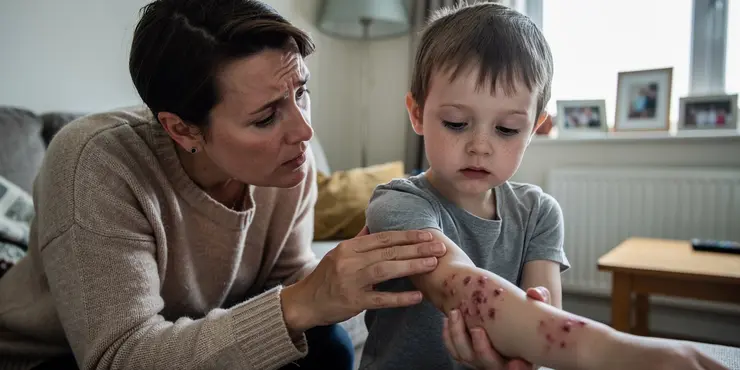
Find Help
More Items From Ergsy search
-
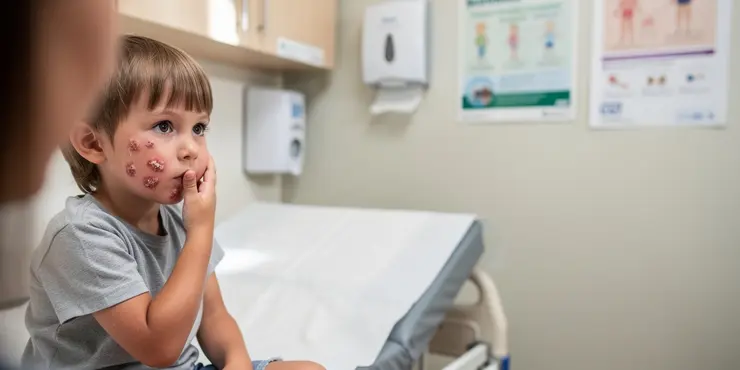
Is impetigo painful?
Relevance: 100%
-

Pharmacy First – Impetigo Service
Relevance: 98%
-

Can impetigo become serious?
Relevance: 92%
-

Is impetigo contagious?
Relevance: 91%
-
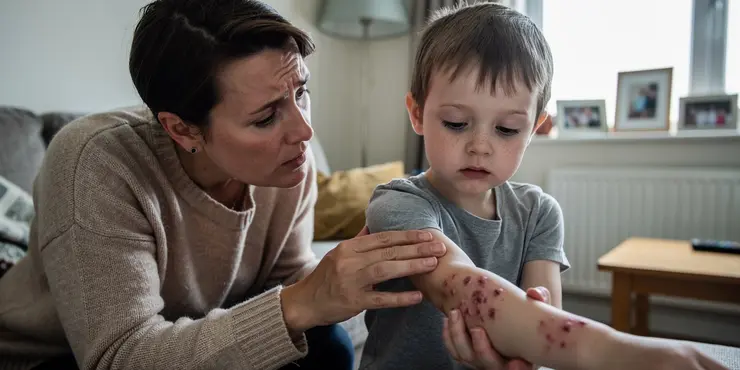
What should I do if my child has impetigo?
Relevance: 91%
-
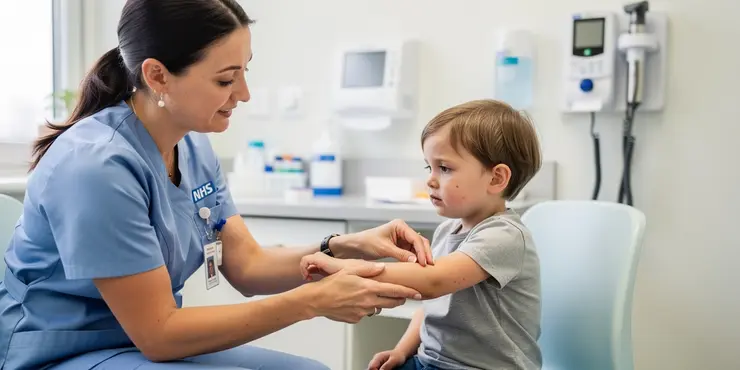
Is there a vaccine for impetigo?
Relevance: 90%
-

When should I seek medical help for impetigo?
Relevance: 87%
-
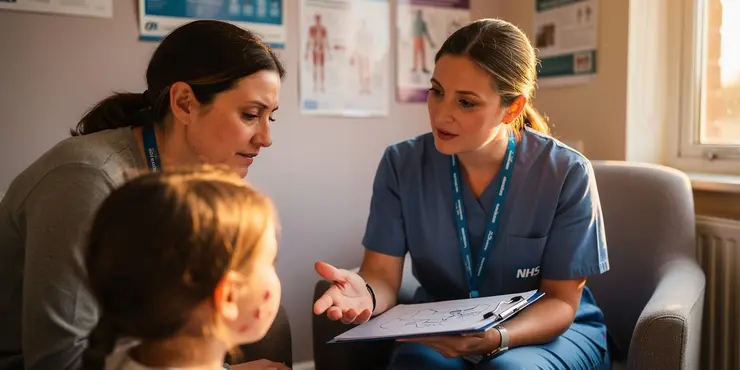
How is impetigo treated?
Relevance: 86%
-

How can I tell if I have impetigo?
Relevance: 86%
-
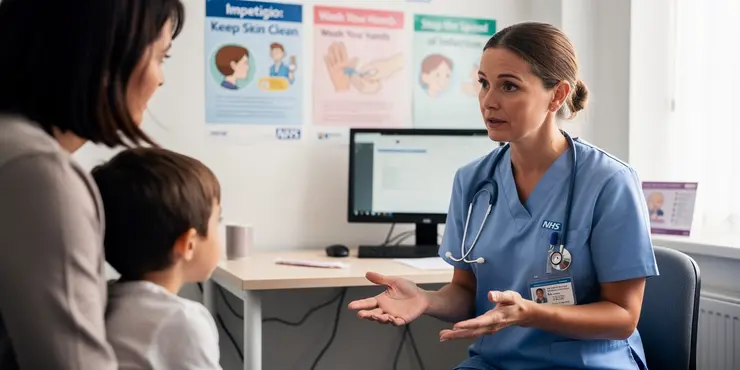
How can I prevent the spread of impetigo?
Relevance: 85%
-
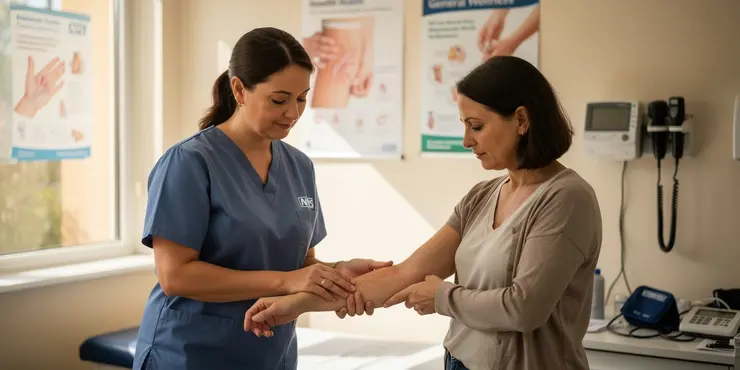
Can adults get impetigo?
Relevance: 83%
-

Minor ailment scheme - Impetigo
Relevance: 83%
-

Are there any home remedies for impetigo?
Relevance: 82%
-
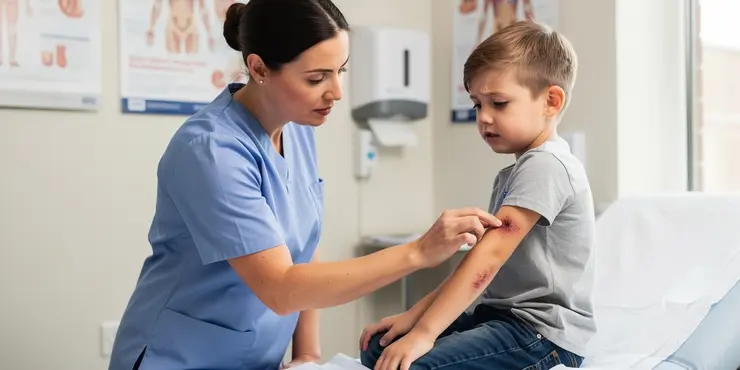
Can I get impetigo more than once?
Relevance: 78%
-

How long does it take for impetigo to heal?
Relevance: 78%
-
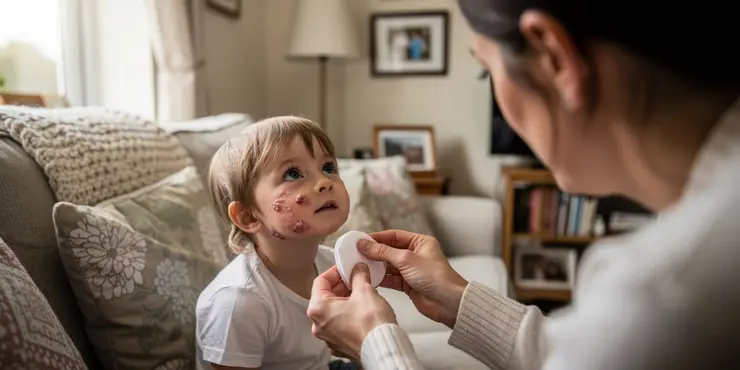
Can impetigo spread to other parts of my body?
Relevance: 77%
-

Child Bereavement
Relevance: 54%
-

My Stammering Child
Relevance: 54%
-

Navigating Child Custody Laws in the UK
Relevance: 49%
-
Is screening painful or risky for my child?
Relevance: 49%
-
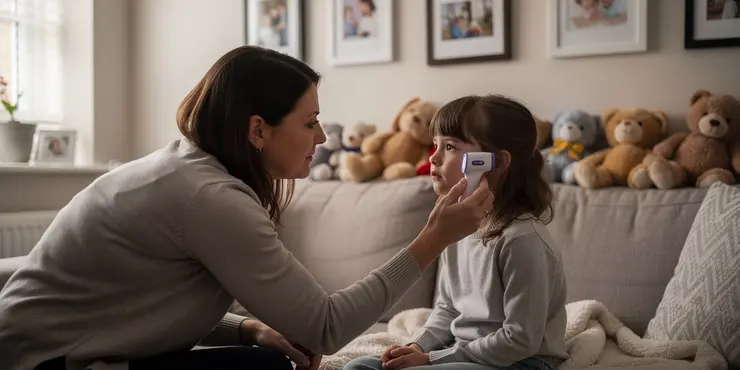
Caring for a child with fever | NHS
Relevance: 49%
-

Child Care Proceedings | Family Law
Relevance: 48%
-
What should I do if I suspect my child is being groomed?
Relevance: 47%
-
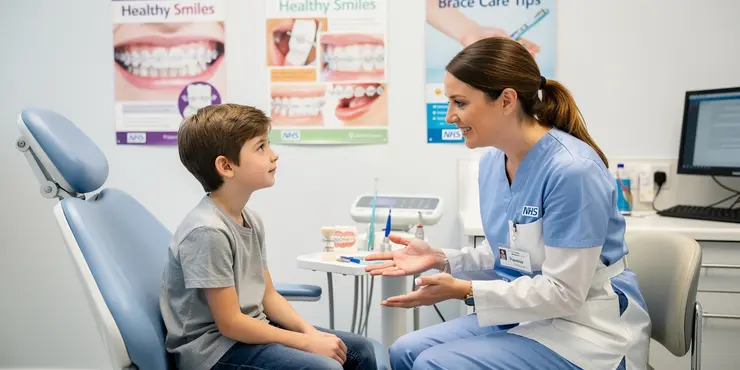
Can my child get braces on the NHS?
Relevance: 47%
-
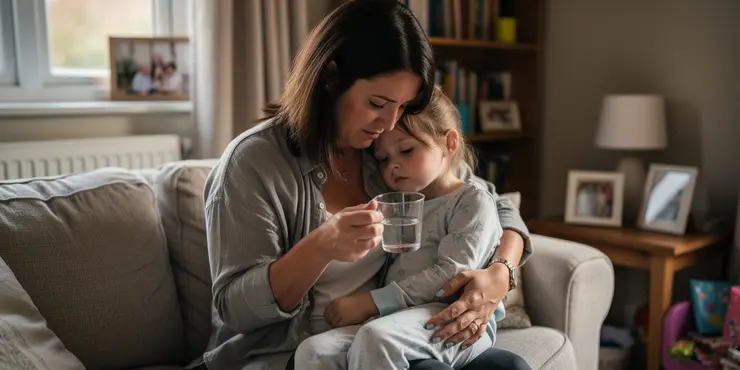
My child has vomiting and diarrhoea - what do I do?
Relevance: 46%
-
How can I tell if my child is being groomed?
Relevance: 46%
-

How to Keep a Child With Chickenpox Comfortable
Relevance: 46%
-

Navigating Child Custody and Visitation Rights in Modern UK
Relevance: 46%
-
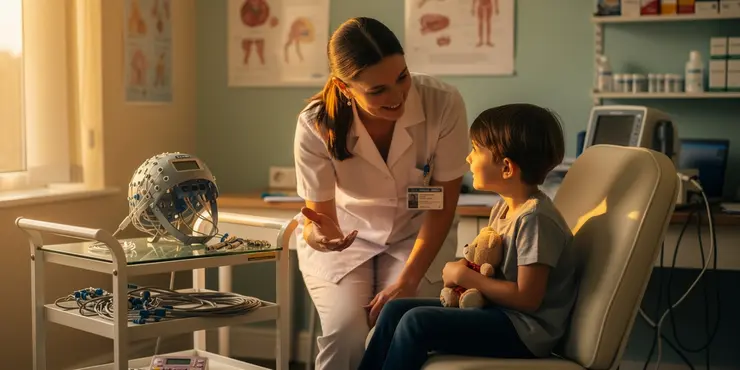
What happens when my child has an EEG?
Relevance: 45%
-

Advice if your child has... A High temperature
Relevance: 44%
-
What happens if my child's screening results are positive?
Relevance: 44%
-
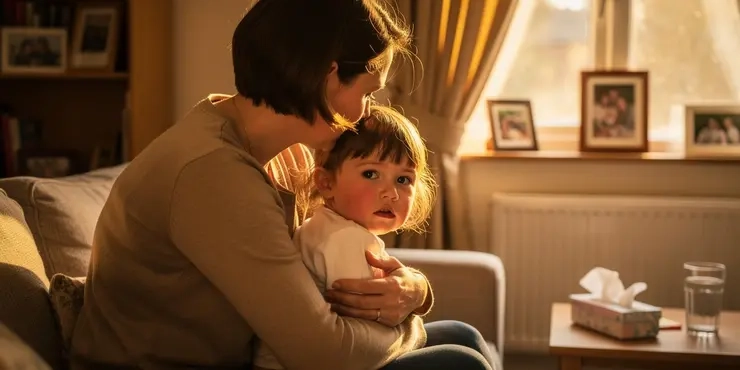
What to do when your child has... croup
Relevance: 44%
-

Managing and treating your child's eczema
Relevance: 44%
-

Stammering myth 4: You should ignore a child's stammer
Relevance: 44%
-
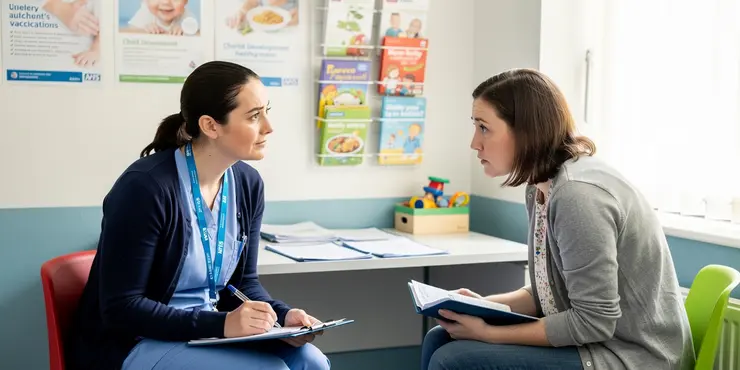
Should I test my child for high blood pressure?
Relevance: 44%
-
How can I educate my child to recognize grooming behaviors?
Relevance: 44%
-
Should I limit my child's internet usage to prevent grooming?
Relevance: 43%
-

Eczema - Your child's appointment | Dermatology | Paediatrics
Relevance: 43%
-
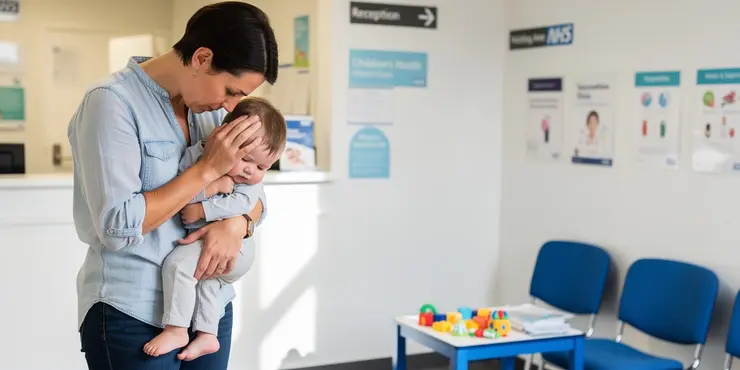
How do I treat my child's cold? (9 - 30 months) | NHS
Relevance: 43%
-
What are the common signs that a child might be a victim of grooming?
Relevance: 43%
Understanding Impetigo
Impetigo is a common and highly contagious skin infection primarily affecting young children, though it can occur at any age. It is caused by bacteria, usually Staphylococcus aureus or Streptococcus pyogenes, and appears as red sores that can ooze and form a yellow-brown crust. While impetigo is not usually serious, it can be uncomfortable and requires proper care to prevent spreading.
Recognising Symptoms
If your child has impetigo, you might notice red sores or blisters around their mouth, nose, or other exposed parts of the body. These sores can burst and ooze before developing a honey-coloured crust. In some cases, the affected area may be itchy or sore. Early recognition and treatment are essential to prevent the infection from spreading to other parts of the body or to other people.
Consulting a Healthcare Professional
It's important to consult with a healthcare professional if you suspect your child has impetigo. They can provide a proper diagnosis and treatment plan. In the UK, contacting your GP or calling NHS 111 for advice and guidance is a good first step. In some cases, a healthcare provider may recommend seeing a dermatologist for specialised care.
Treatment Options
For mild cases of impetigo, your doctor may prescribe a topical antibiotic cream or ointment to apply to the affected area. Ensure that you follow the application instructions carefully, usually applying it for a week. If the infection is more severe or widespread, oral antibiotics might be necessary. Always complete the full course, even if symptoms improve, to reduce the risk of recurrence and antibiotic resistance.
Preventing the Spread
Impetigo is highly contagious, so it's crucial to take steps to prevent it from spreading to others. Keep your child home from school or nursery until they are no longer contagious, generally after 48 hours of starting antibiotic treatment or when the sores have healed. Teach your child to not touch or scratch the sores and to wash their hands regularly. Use separate towels for the infected child and wash all used items, like clothing and bedding, at a high temperature.
Managing at Home
Practicing good hygiene at home can aid recovery and prevent further infection. Gently clean the affected areas with soap and water and keep them covered with a loose bandage. Encourage your child to maintain short and clean nails to reduce the chance of spreading the bacteria by scratching. Monitor for signs of improvement or any worsening of symptoms, and follow up with your healthcare provider as recommended.
Understanding Impetigo
Impetigo is a skin infection that is easy to catch. It mostly affects young children but can happen at any age. It is caused by germs called bacteria. Impetigo looks like red sores that can burst and form a yellow-brown crust. It is not usually serious but can be uncomfortable. Proper care is needed to stop it from spreading.
Recognising Symptoms
If your child has impetigo, you may see red sores or blisters around their mouth, nose, or on the skin. These sores can burst and ooze, then form a honey-colored crust. The area might be itchy or sore. It's important to see these signs early so the infection doesn’t spread.
Consulting a Healthcare Professional
If you think your child has impetigo, talk to a healthcare professional. They can tell you what to do and how to treat it. In the UK, you can call your GP or NHS 111 for help. Sometimes, a doctor might ask you to see a skin specialist, called a dermatologist.
Treatment Options
If the impetigo is mild, the doctor might give you a special cream or ointment to put on the sores. Use it as the doctor tells you, usually for a week. For more serious cases, you might need medicine in tablet form. Always finish the medicine as prescribed, even if your child feels better.
Preventing the Spread
Impetigo spreads easily, so it is important to stop it from reaching others. Keep your child at home away from school or nursery until they are not contagious, usually 48 hours after starting treatment or when sores heal. Teach your child not to scratch the sores and to wash their hands often. Use different towels for the child and wash any clothes or bedding they use in hot water.
Managing at Home
Good hygiene at home can help your child get better and stop new infections. Clean the sores gently with soap and water, and cover them with a loose bandage. Keep your child's nails short and clean to stop bacteria from spreading when they scratch. Watch how the sores heal and talk to your doctor if needed.
Frequently Asked Questions
Useful Links
This website offers general information and is not a substitute for professional advice.
Always seek guidance from qualified professionals.
If you have any medical concerns or need urgent help, contact a healthcare professional or emergency services immediately.
Some of this content was generated with AI assistance. We’ve done our best to keep it accurate, helpful, and human-friendly.
- Ergsy carfully checks the information in the videos we provide here.
- Videos shown by Youtube after a video has completed, have NOT been reviewed by ERGSY.
- To view, click the arrow in centre of video.
- Most of the videos you find here will have subtitles and/or closed captions available.
- You may need to turn these on, and choose your preferred language.
- Go to the video you'd like to watch.
- If closed captions (CC) are available, settings will be visible on the bottom right of the video player.
- To turn on Captions, click settings .
- To turn off Captions, click settings again.
More Items From Ergsy search
-

Is impetigo painful?
Relevance: 100%
-

Pharmacy First – Impetigo Service
Relevance: 98%
-

Can impetigo become serious?
Relevance: 92%
-

Is impetigo contagious?
Relevance: 91%
-

What should I do if my child has impetigo?
Relevance: 91%
-

Is there a vaccine for impetigo?
Relevance: 90%
-

When should I seek medical help for impetigo?
Relevance: 87%
-

How is impetigo treated?
Relevance: 86%
-

How can I tell if I have impetigo?
Relevance: 86%
-

How can I prevent the spread of impetigo?
Relevance: 85%
-

Can adults get impetigo?
Relevance: 83%
-

Minor ailment scheme - Impetigo
Relevance: 83%
-

Are there any home remedies for impetigo?
Relevance: 82%
-

Can I get impetigo more than once?
Relevance: 78%
-

How long does it take for impetigo to heal?
Relevance: 78%
-

Can impetigo spread to other parts of my body?
Relevance: 77%
-

Child Bereavement
Relevance: 54%
-

My Stammering Child
Relevance: 54%
-

Navigating Child Custody Laws in the UK
Relevance: 49%
-
Is screening painful or risky for my child?
Relevance: 49%
-

Caring for a child with fever | NHS
Relevance: 49%
-

Child Care Proceedings | Family Law
Relevance: 48%
-
What should I do if I suspect my child is being groomed?
Relevance: 47%
-

Can my child get braces on the NHS?
Relevance: 47%
-

My child has vomiting and diarrhoea - what do I do?
Relevance: 46%
-
How can I tell if my child is being groomed?
Relevance: 46%
-

How to Keep a Child With Chickenpox Comfortable
Relevance: 46%
-

Navigating Child Custody and Visitation Rights in Modern UK
Relevance: 46%
-

What happens when my child has an EEG?
Relevance: 45%
-

Advice if your child has... A High temperature
Relevance: 44%
-
What happens if my child's screening results are positive?
Relevance: 44%
-

What to do when your child has... croup
Relevance: 44%
-

Managing and treating your child's eczema
Relevance: 44%
-

Stammering myth 4: You should ignore a child's stammer
Relevance: 44%
-

Should I test my child for high blood pressure?
Relevance: 44%
-
How can I educate my child to recognize grooming behaviors?
Relevance: 44%
-
Should I limit my child's internet usage to prevent grooming?
Relevance: 43%
-

Eczema - Your child's appointment | Dermatology | Paediatrics
Relevance: 43%
-

How do I treat my child's cold? (9 - 30 months) | NHS
Relevance: 43%
-
What are the common signs that a child might be a victim of grooming?
Relevance: 43%


